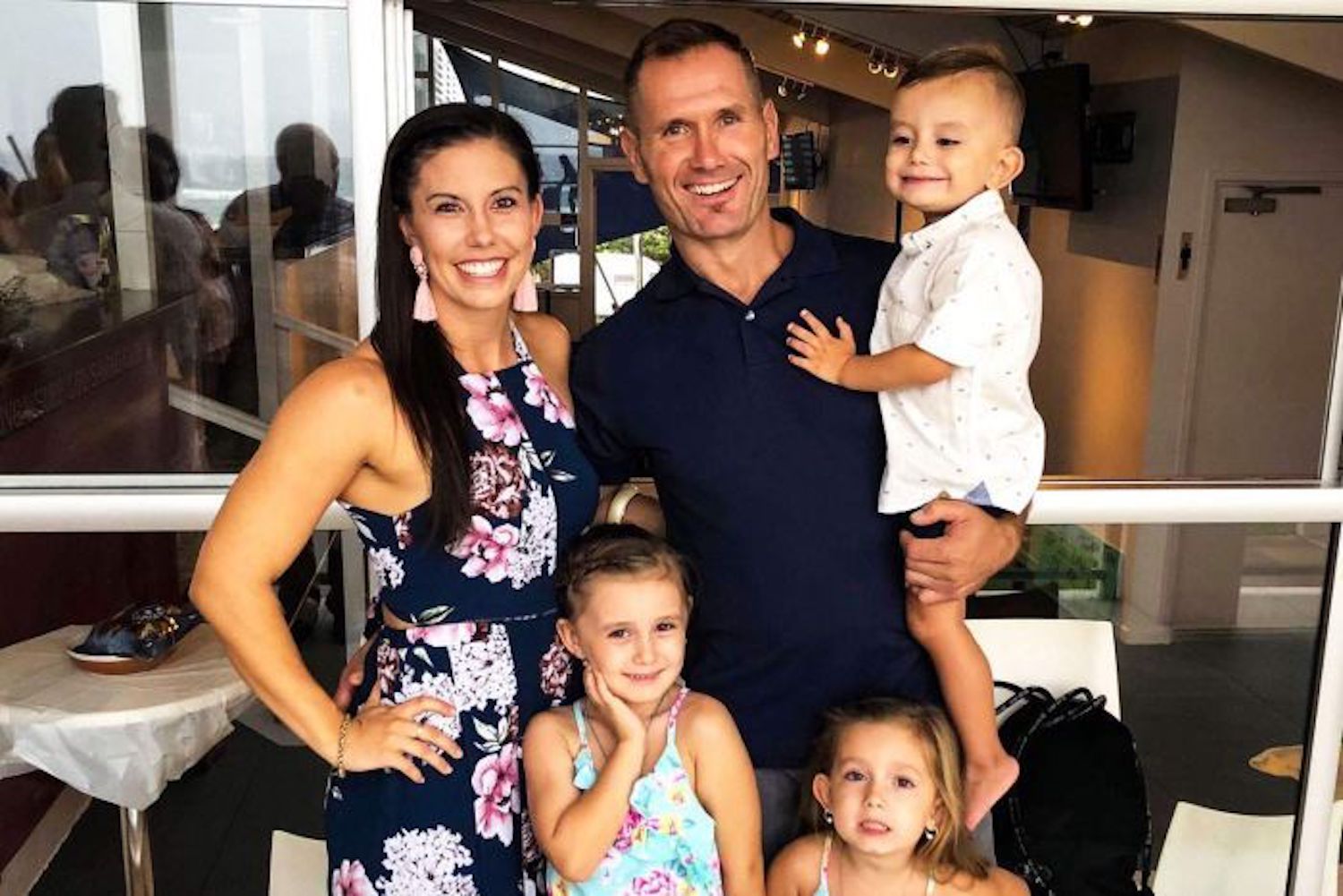
Toby described how he told his friend Troy about a fight he’d had with his parter Lauren that ended with him “smashing something”.
“I would get angry and break things. Smash a plate, or break a broom out the back,” he wrote.
Troy responded in no uncertain terms that what he was doing was domestic violence that would inevitably end horrifically.
“…That would one day turn into me pushing Lauren, which would one day turn into me punching Lauren, which would one day turn into me hitting our kids. And it might stop there but maybe it wouldn’t. Maybe one day it would turn into the kind of thing we have seen happen just recently where a man set a car alight with his children and their mother inside. (All because she tried to leave.)”
RELATED: 8 Behaviours That Might Be Precursors To Domestic Violence
Toby recalled how shocked and resistant he was to the idea.
“I would never — and have never — hit or physically hurt my partner. I was not the kind of man that would commit domestic violence, let alone MURDER someone. Let alone a woman, let alone my partner. I was just the kind of person who needed to break a rake now and then when Lauren and I couldn’t resolve a fight. That was all it was. Just a plate or two. Or a hole in the wall.”
But his mate’s angry warning never left his mind.
“He didn’t swear at me, he didn’t abuse me, but he was mad about it.”
Later, Toby read up about domestic violence, stories from survivor and advice from experts, and quickly discovered his friend’s admonition was warranted.
“Abusive words escalate, smashing stuff escalates, pushing escalates, punching escalates. Murder doesn’t. Murder is the final escalation. I was gobsmacked. Sad. Confused. I was a good man. I loved my partner. I would love our kids. I would never — had never — laid a hand on her. But every thing I read began similarly, “he always used to get angry, and then he started punching holes in the wall/smashing plates/slamming doors.” These stories ended with violence. Always. Because, I realised, they started with violence.”
“These objects are placeholders for the people we aren’t allowed to hit. And one day, those placeholders don’t do the job anymore and a push makes its way into the argument. Just a push. It’s not a big deal, you rationalise, and you’re sorry. And it won’t happen again, you say. And you don’t want it to happen again, you know. Because, of course you don’t. You are a good man. A good man who doesn’t hit his partner, doesn’t beat his kids, wouldn’t cover the car in petrol and set them alight.”
But, Toby says, domestic violence isn’t a vice exclusive to “bad or evil men” its born from escalating changes in already violent acts and we must end the myth of “good men”.
“These behaviours don’t care about your intentions, they aren’t even there for you. They are there to be the food that feeds the monster of anger and aggression. And that beast will grow in size and want for more food. It will want for more aggressive behaviours in order to quiet. And you’ll give in because every escalation is only a small step from the last one and every time it happens it is easier for it to happen again. And every time it happens again you make an excuse that if she hadn’t done what she had done or said what she had said, you wouldn’t have done what you did. Because you’re a good man. You know you are. I mean, come on, let’s not make a big deal out of it, you just broke a plate. You just punched a wall. You only pushed her back, hit her once, burned her and your children alive in a car.”
RELATED: “I Saw An Anger Management Specialist – Here’s What Happened”
He says that he doesn’t know what would have happened if he behaviour wasn’t called out.
“There is no possible world in which someone starts breaking kitchenware and just one day stops all of a sudden,” he writes. “They either keep breaking kitchenware or they move onto people. Or, they get help.”
Toby got professional help.
“I received a diagnosis of ADHD in my late 20s which I was able to treat and which helped me understand why I wasn’t processing arguments the way I was told I should be. I was able to develop tools that allowed me to do that with professional help. (Spoilers: I’m still insufferable when it comes to arguments, I just don’t get mad or smash stuff anymore.)”
His message to any men reading his post and feeling ashamed about their actions is that they’re not alone.
“I still feel ashamed about it. I questioned writing this because I wondered if people I knew would be ashamed of me or if their opinion would change. Even though I never hit or hurt anyone. They were just plates. I feel ashamed because admitting that what I did was what all abusive husbands once did would mean admitting that maybe one day I could hit a woman, hurt our kids, end up as “not a good man”. If you are ashamed, so was I. But that shame is healthy.”
“Shame can come without judgement from those who want you to get better, to do better. You will find no judgement from a professional who can help give you the tools to be better. You will find no judgement from the psychiatrist who may be able to diagnose a neurological condition or mental health problem you didn’t know you had. And I hope you find no judgement from your friends and family when you tell them you think you need to deal with your anger in a professional setting and become a better man. An acknowledgement of shame can be healthy and we can grow from it. We can be better men not in spite of our shame but because of it. In fact, I’d argue, we can only be better men by being ashamed of our unacceptable behaviours.”
He says men must be better. Better husbands, partners, fathers and mates.
“Nothing will change without us changing ourselves, without holding our friends and family members accountable, change can only truly come from us because it starts there. And it ends there. It starts and ends with us. I never thanked Troy for what he did and said that day. I never thanked him for his caring, rational, non-judgmental, and non-violent anger. But he’ll read this so here it is: Thank you for what you said that day, thank you for holding me accountable, and thank you for helping me be better. Thank you for being what it actually means to be a mate. It is time for all of us to leave the want to be a good man behind and embrace the need to be a better one. Because that’s the only kind of good that matters.”
If you or anyone you know needs help contact:
Lifeline on 13 11 14
Mensline Australia on 1300 789 978
Beyond Blue on 1300 224 636
RESPECT on 1800 737 732
Men’s Referral Service on 1300 766 491
















